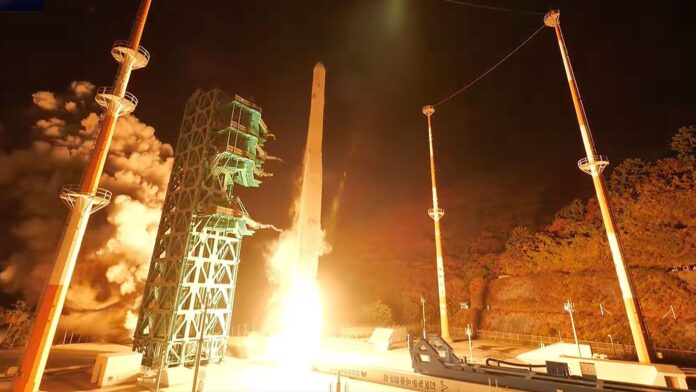South Korea has achieved another milestone in its space program, successfully launching an Earth-observation satellite aboard its domestically-built Nuri rocket. The launch, which occurred on November 26th, marks the fourth flight of the Nuri and demonstrates growing South Korean capabilities in independent space access.
Nuri Rocket and Its Significance
The 155-foot Nuri rocket lifted off from the Naro Space Center, carrying the CAS500-3 satellite along with a dozen smaller cubesats. This mission is noteworthy because it’s the first fully indigenous South Korean orbital rocket, meaning no foreign components were required for its core functionality.
Prior to Nuri, South Korea relied on modified Russian technology for orbital launches. The Nuri’s first attempt in 2021 failed, but subsequent launches in 2022 and 2023 proved successful, establishing a reliable launch cadence.
CAS500-3: What Will It Do?
The primary payload, CAS500-3, is a 1,100-pound Earth-observation satellite designed to study atmospheric phenomena like auroras and airglow. It will also measure magnetic fields and plasma concentrations, providing valuable data for atmospheric research. The satellite will operate in a sun-synchronous orbit at an altitude of 373 miles (600 kilometers).
In addition to CAS500-3, the Nuri carried twelve cubesats from various companies and research institutions, each designed to perform different tasks in orbit.
A New Era for South Korean Space Exploration
The Nuri’s fourth launch is particularly important because it’s the first since the establishment of the Korea Aerospace Administration (KASA) in May 2024. It also represents a shift towards greater domestic involvement, with a system-integration company now responsible for overall rocket production and launch operations.
This mission highlights South Korea’s commitment to expanding its independent space capabilities, which will be crucial for national security, scientific research, and commercial opportunities.
The success of this launch solidifies South Korea’s position as a growing player in the global space industry.



























